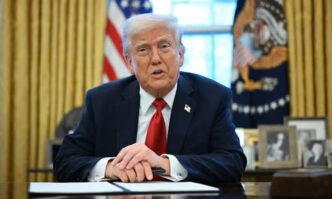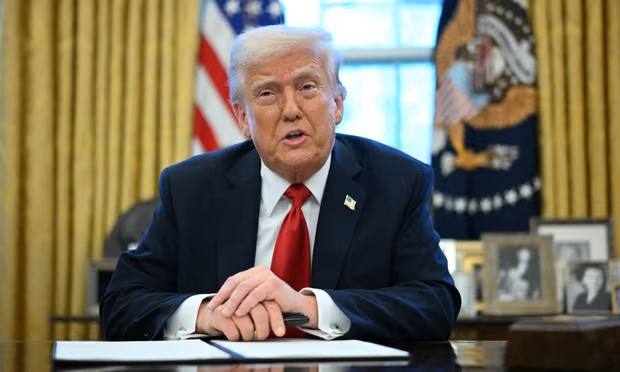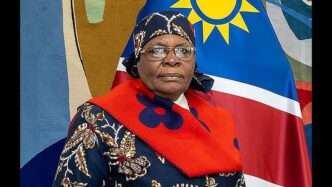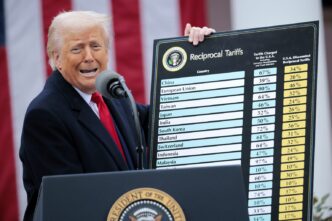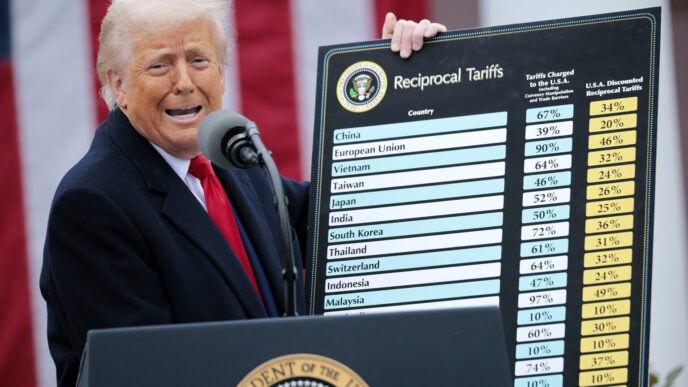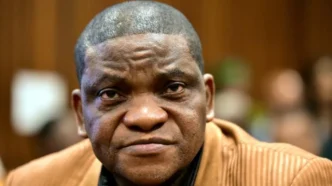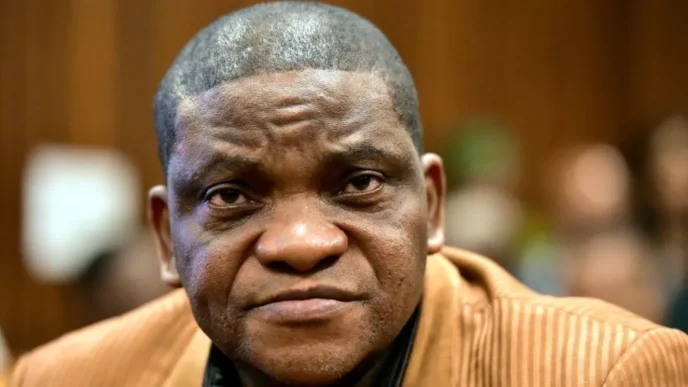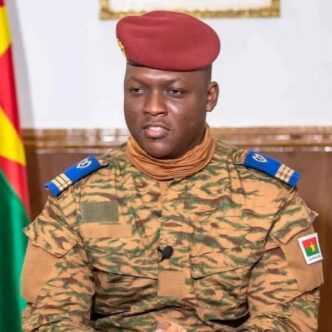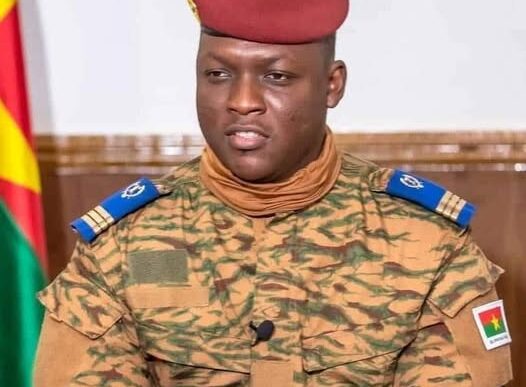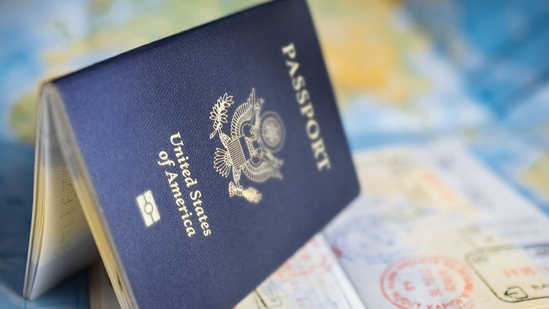In a decisive move, the U.S. government has sanctioned six high-ranking Chinese and Hong Kong officials for their involvement in actions that threaten Hong Kong’s autonomy and contribute to what is being called “transnational repression.”
This action is seen as a major response from the Trump administration against Beijing’s crackdown on Hong Kong, marking the first such significant step in addressing China’s handling of the city.
The U.S. State Department issued a statement, outlining that the sanctioned individuals had used Hong Kong’s national security laws beyond the city’s borders to intimidate and silence pro-democracy activists.
These actions have forced 19 activists, including a U.S. citizen and four other U.S. residents, to flee abroad.
The statement emphasized that these individuals are part of a broader campaign of suppression aimed at diminishing Hong Kong’s freedom, despite China’s commitment to uphold the region’s autonomy under the “one country, two systems” framework.
In response to these actions, the U.S. has taken measures to block any property, funds, or transactions tied to the six officials within the U.S.
Their involvement in the “further erosion of Hong Kong’s autonomy” and their connection to “transnational repression” were key factors leading to the sanctions.
Among those sanctioned is Dong Jingwei, a former senior official of China’s main civilian intelligence agency, who is now the director of China’s Office for Safeguarding National Security in Hong Kong.
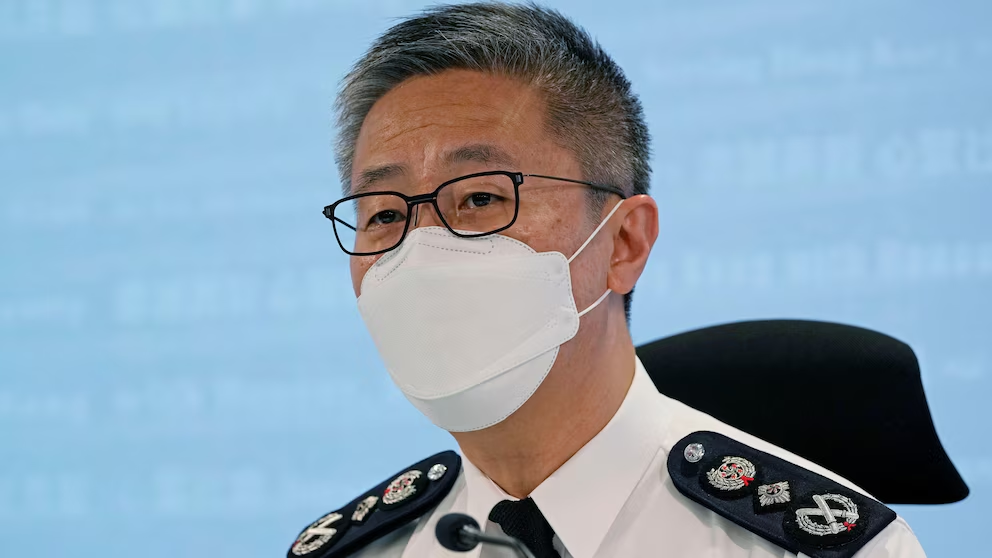
Dong, known for his role as China’s top spy catcher and former vice minister of state security, is seen as one of the key figures in executing China’s national security policies in Hong Kong.
In addition to Dong, several high-ranking officials, including Paul Lam, the Hong Kong Secretary for Justice, were sanctioned for their roles in prosecuting pro-democracy activists under the security law.
Lam has been responsible for overseeing numerous prosecutions that have targeted activists, journalists, and other critics of the Hong Kong government.
Other security and police officials who have been sanctioned include Sonny Au, Dick Wong, Margaret Chiu, and Raymond Siu.
These individuals have been accused of coercing, arresting, detaining, and imprisoning pro-democracy individuals under the stringent security laws that have been used to suppress dissent in the city.
The response from China and the Hong Kong government has been swift and strongly worded.
A spokesperson for China’s Foreign Commissioner’s office in Hong Kong labeled the U.S. sanctions as “despicable” and accused the U.S. of attempting to destabilize Hong Kong’s prosperity and stability.
The Hong Kong government also condemned the sanctions, accusing the U.S. of overstepping its boundaries and acting under its own hegemonic agenda.
China has consistently defended the national security law, claiming it is necessary to maintain stability in Hong Kong after the large-scale pro-democracy protests of 2019.
The law, which carries severe penalties for acts of subversion, foreign collusion, and secession, has been used to arrest hundreds of activists, close down media outlets, and stifle any form of political opposition.
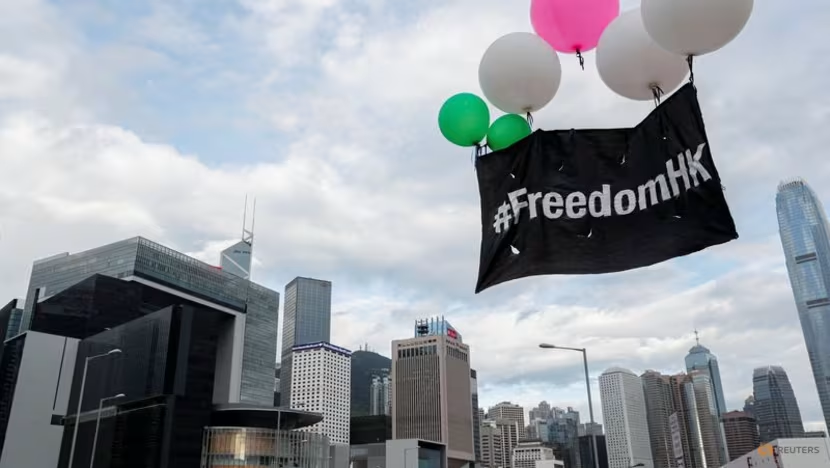
The Chinese government argues that the law has brought necessary stability to the region.
However, critics argue that the law has undermined Hong Kong’s freedoms and autonomy, which were guaranteed under the 1997 handover agreement between Britain and China.
Western nations, including the U.S., have condemned the law for its role in curbing freedom of speech, press, and assembly in the city.
In addition, the law has faced global backlash for its extraterritorial application, which allows Beijing to target critics worldwide.
The U.S. sanctions are seen as a part of an ongoing effort to hold Chinese officials accountable for their actions in Hong Kong.
These sanctions aim not only to send a strong message to China but also to ensure that other individuals do not fall victim to similar policies that threaten the autonomy and freedom of Hong Kong citizens.
